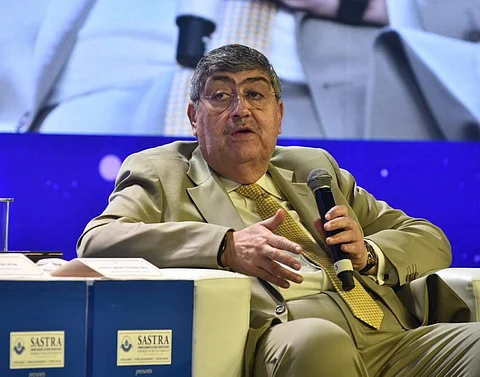

There should be a distinct boundary between legal and political matters in the purview of the judiciary and political matters should only be settled within the political arena, said former Supreme Court Judge Sanjay Kishan Kaul on the inaugural session on Day 2 of the 13th ThinkEdu Conclave, presented by SASTRA University, in Chennai, on Thursday.
Speaking at the session titled “Constitution as Guiding Light: Why We Need to Know the Law,” chaired by author and analyst Shankkar Aiyar, Judge Kaul asserted that while the courts could determine intersections of legal and political issues, purely political matters should be settled within the political arena.
“There is a prevalent expectation for courts to intervene on behalf of the opposition, particularly in times of robust governance. The primary responsibility of the courts is to ensure that any government adheres to the constitution,” said Judge Kaul.
While advocating for a proactive role in ensuring constitutional adherence by strong governments, he underscored the distinction between the roles of the court and the political sphere.
“It cannot be a substitute for the political arena issues which need to be addressed in the political arena alone”, remarked Judge Kaul during the session.
Highlighting the constitution as a guiding force during conflicts with the executive, Judge Kaul emphasised the importance of the judiciary’s role in maintaining checks and balances.
“The foremost duty of the courts is to meticulously scrutinise the constitution, revisiting its provisions when political or other dispensations deviate from constitutional norms. It is incumbent upon the judiciary to articulate the constraints, as the constitution acts as a crucial equilibrium among the executive, judiciary, and political dispensation," said Judge Kaul.
Commenting on the collegium system, Judge Kaul advocated for direct interaction between the executive and judiciary in the appointment of judges. He expressed concern about the slow pace of appointments under the collegium system, making it challenging to attract bright legal minds due to uncertainties in the selection process.
Judge Kaul proposed formal and open discussions in judicial appointments, favouring transparency over behind-the-scenes negotiations. “Informal discussions will take place, so why not have it formally those discussions so that we have a more open system in the appointed person,” he suggested, emphasising dialogue between stakeholders rather than public debates.
Addressing the prospect of a Truth and Reconciliation Council, Judge Kaul acknowledged its potential to acknowledge people’s pain and share their stories. While expressing doubts about the possibility of individuals returning to Kashmir, he believed that such a council could help them connect with their roots.
